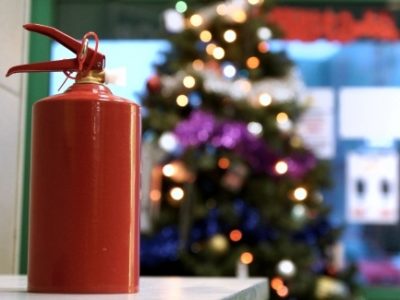

Portable Generator-Related Deaths: Carbon Monoxide Poisoning
Portable generators have many uses including heating and lighting campsites and as backup electricity for when the power goes out unexpectedly. Many businesses and some households keep generators on hand for just this reason. Anyone using a portable generator should be aware of the dangers that it can pose if not used in a safe way; namely the risk of carbon monoxide poisoning. Research conducted by the U.S. Consumer Product Safety Commission between 2004 and 2013 found that generators were the cause of 81 percent of the 808 deaths attributed to engine driven tools.
The spot in the home the generator was located at the time of portable generator-related deaths:
- 180 deaths: non-basement living space
- 15 deaths: outside but near open windows, doors or vents
- 3 deaths: doorway to home
- 127: Basement
- 136: garage
- 33 deaths: somewhere inside home
Top generator safety tips
Portable generator-related deaths are preventable. Reading up on generator safety tips before using one is the best way to prevent a tragic accident; the most important tip is to never run a generator in an enclosed or partially enclosed space. Just as we are advised not to run our cars inside a garage, we should also never run a portable generator inside our garage or home. Secondly, if you suspect that you were exposed to carbon monoxide or your CO detector is beeping, get yourself and your entire family out of the house immediately and call 911. If a fire is started by your generator or if you are electrocuted vacate the area and call 911 as soon as you are able.
- Always setup your generator outdoors in a fully ventilated area at least 20 feet away from windows, vents or doors and at least 10 feet away from combustible material.
- Install battery operated carbon monoxide detectors (CO alarms) near where you store the generator and inside your home in the hallway near bedrooms. Test them on a regular basis.
- Do not operate your generator in wet conditions or touch your generator with wet hands as you are risking electrocution. To protect the generator from moisture, place it on top of a dry surface and cover it with an open, canopy-like structure such as a tarp.
- If you need to run appliances from a generator, either plug them directly into it or use a heavy-duty three-pronged outdoor extension cord with a grounding pin that’s rated (in watts or amps) at or above the sum of the loads of your connected appliances. Check that your extension cord doesn’t have any cuts or tears.
If you or a loved one is dealing with an accident or injury through no fault of your own, you have enough on your plate. Let an experienced accident attorney fight for the full compensation that you deserve. It is not uncommon to receive a settlement from the insurance company that is five to ten times bigger with the help of a lawyer. Call the caring accident attorneys at Tario & Associates, P.S. in Bellingham, WA today for a FREE consultation! We have been representing residents of Whatcom County, Skagit County, Island County and Snohomish County since 1979. You will pay nothing up front and no attorney fees at all unless we recover damages for you!




